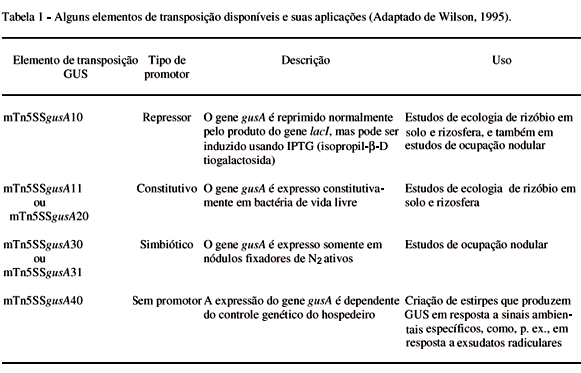Many of the ecological aspects involved with the interactions between legume species and rhizobia strains have been made easily to understood with the use of reporter gene techniques. The introduction of a specific reporter gene in an organism has shown to be highly efficient to analyze such interactions. These reporter genes generally code for products that can be easily identified or measured, mainly enzymes that can act on a variety of substrates, supplying colored or fluorescent detectable products. In general, the marker genes have been used in different aspects of microbial ecology, as in the competition studies among rhizobia strains, symbiotic gene expression, rhizosphere and root colonization, among others. In all studies, the marker genes need to be introduced into the genome by a plasmid or through a chromosomal insert. The present review focus, mainly, on the diverse use and applications of marker genes on ecological microbial studies with emphasis on the GUS gene system (b-glucuronidase).
reporter gene; microbial ecology; marker gene; gus gene; GUS system; b-glucuronidase; rhizobia; symbiosis

